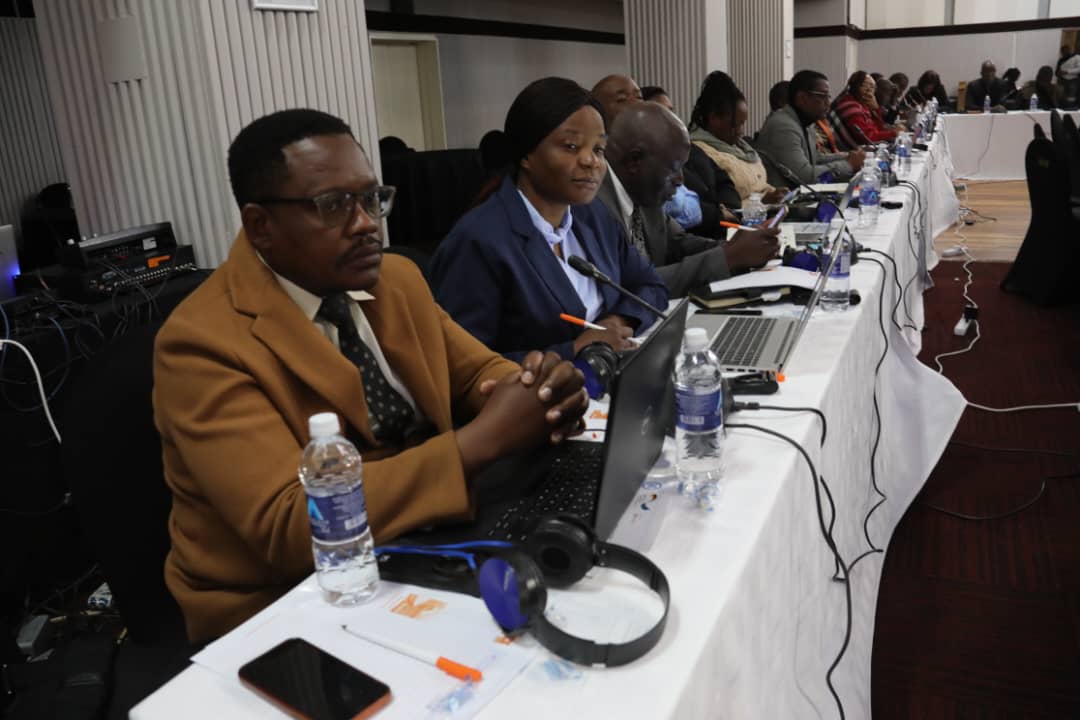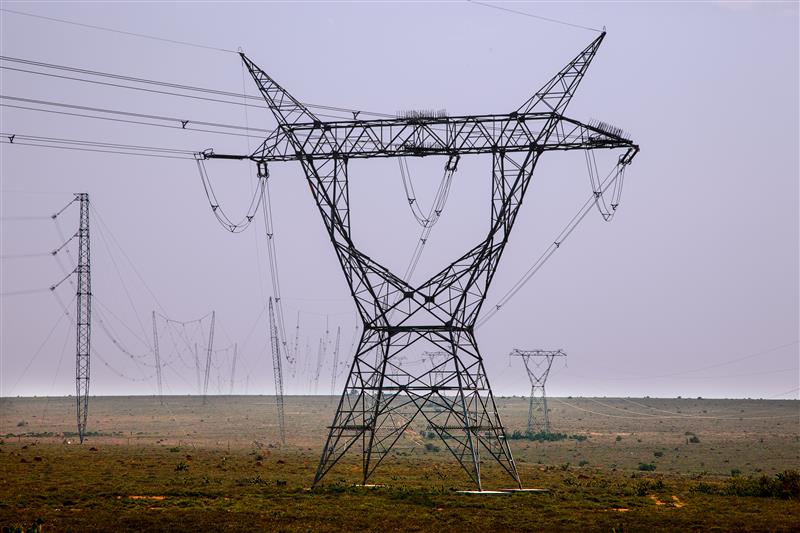Business
SADC and Germany Unite to Revolutionise Leather Industry at Historic Bulawayo Forum

The Southern African Development Community (SADC), in partnership with the German government, is set to host the inaugural SADC Regional Leather Forum in Bulawayo.
This landmark event, scheduled to kick off soon, marks a pivotal moment in the region’s journey towards economic diversification and value-added production.
The forum, a cornerstone of SADC’s Industrialisation Strategy and Roadmap (2015–2063), aims to shift the region’s economy from resource dependency to a robust, productivity-driven model.
By focusing on the leather value chain, SADC seeks to unlock new opportunities for investment, innovation, and cross-border trade, positioning the sector as a key driver of sustainable growth.
Under the SADC-German Cooperation framework, implemented through the GIZ-led CESARE programme, Germany has already made significant strides in supporting the leather industry.
Investments have upgraded tanneries in southern Africa, elevated production standards, and fortified business operations, laying a solid foundation for the forum’s objectives.
These efforts underscore a shared vision to enhance the competitiveness of the leather sector, not just within SADC but on a global scale.
The Bulawayo forum is more than a meeting; it’s a strategic platform designed to align regional policies, assess the progress of the SADC Leather Regional Model Policy Framework, and chart a course for future action.
Stakeholders from across the region will converge to discuss critical issues, from policy harmonisation to improving product quality and expanding export markets.
The anticipated outcomes include a comprehensive roadmap that promises to boost the leather industry’s profile, both continentally and internationally.
This initiative reflects a broader trend of international cooperation in African industrialisation. As global demand for high-quality leather products rises, SADC’s focus on value addition could not be timelier. The forum’s emphasis on innovation and trade facilitation is expected to create ripple effects, benefiting not only the leather sector but also ancillary industries and local communities.
For Bulawayo, a city with a rich history in leather production in Zimbabwe, the forum represents a renaissance. It offers a chance to reclaim and expand its role as a hub for leather manufacturing, potentially attracting new foreign direct investment (FDI) and fostering job creation. The event’s location in Bulawayo is symbolic, signalling a commitment to regional balance and inclusive growth.
As SADC and Germany join forces, the message is clear: the future of the leather industry lies in collaboration, innovation, and a relentless pursuit of excellence. The Bulawayo forum is set to be a game-changer, not just for the leather sector, but for the entire region’s industrial landscape. Stay tuned as this historic gathering unfolds, promising to reshape the contours of SADC’s economic future.
Business
Zimbabwe Bets Big on Biotech to Fuel Industrial Revolution


Dr. Eng. Willie Ganda
By Enia Dube
The Minister of Higher and Tertiary Education, Innovation, Science and Technology Development, Hon. Dr Fredrick Shava, has thrown his weight behind biotechnology as a key driver of the country’s industrialisation and modernisation agenda.
Speaking at the National Biotechnology Authority (NBA) Strategic Planning Workshop in Kadoma, Dr Shava urged the Authority to identify biotechnology-led opportunities that can boost national production and accelerate economic growth.
“Biotechnology serves as a key catalyst for NDS2 implementation, advancing inclusive economic growth, job creation, and sustainable industrial development,” Dr Shava said, emphasising the need to integrate biotechnology into national value chains to unlock a biotechnology-driven economy. He added that this would turn innovation into industry, knowledge into enterprise, and science into jobs.
The NBA has made notable progress in establishing a strong regulatory framework, promoting biotechnology research and commercialisation, and raising public awareness about the sector’s potential. The Authority has successfully commercialised products such as Mapfura wine and Cofsol cough syrup, and has several other biotechnology products in the pipeline.
Incoming NBA Board Chairperson, Professor Idah Sithole-Niang, echoed Dr Shava’s sentiments, emphasising that the Authority’s five-year strategic plan must meaningfully contribute to the attainment of Vision 2030. “This event marks a significant milestone in the Authority’s ongoing efforts to enhance the role of biotechnology in Zimbabwe’s socio-economic development,” she said.
The workshop aimed to realign priorities and resources in response to emerging technologies and global biotechnology trends, and develop a strategic roadmap to strengthen biotechnology as a key driver of Zimbabwe’s socio-economic transformation. The rapidly evolving global biotechnology landscape, including advancements in gene editing, bio-manufacturing, and climate-smart innovations, presents both new opportunities and challenges for Zimbabwe.
“We recognise the pressing need for an inclusive and forward-looking strategic plan that can navigate the complexities of the biotechnology landscape,” Professor Sithole-Niang noted. The workshop was attended by researchers, government officials, and NBA staff, who are optimistic about the potential of biotechnology to drive Zimbabwe’s economic transformation and achieve Vision 2030.
Business
GAS COMPANY, DIRECTOR IN COURT OVER ALLEGED TAX VIOLATIONS

A Harare-based liquefied petroleum gas retailer, Prompt Gas, and its director, Gift Patsika, have appeared in court on allegations of breaching tax and exchange control regulations involving more than R8 million.
The pair appeared before regional magistrate Marewanazvo Gofa on Wednesday.
According to prosecutors, detectives from the CID Asset Forfeiture Unit were deployed on Monday under an operation code-named “Pressure Valve,” which focused on inspecting fuel and LPG businesses for compliance in areas such as licensing, pricing, funding sources and banking transactions.
Investigators visited Prompt Gas premises at 1170A3 Mutare Road, where initial checks indicated that the company had imported gas from Mozambican supplier IPG between January 1 and November 18 this year at a cost of R8,006,055.75.
The State alleges that Patsika failed to furnish proof that the imports were processed through formal banking channels as required. Authorities further claim the company made offshore payments without Reserve Bank of Zimbabwe approval, in violation of exchange control regulations.
The court also heard that the origins of the funds used for the purchases could not be accounted for, raising possible money laundering concerns.
The matter is expected to continue as investigations proceed.
Business
Zimbabwe Slashes Energy Costs in Bid to Boost Economy


The Zimbabwean government has taken a significant step towards reducing business costs and attracting investment by slashing a range of licenses, levies, and fees in the energy sector. This move is part of a broader effort to modernize regulation and make the country a more competitive destination for capital.
The reforms are a direct response to the need to reduce the cost of doing business and accelerate growth in key energy subsectors, said Information Minister Dr. Jenfan Muswere, announcing the measures after Tuesday’s Cabinet meeting. The review followed extensive consultations with ministries, government agencies, and energy sector players, and forms part of the broader reform package approved by Cabinet in July last year.
The Zimbabwe Energy Regulatory Authority licence application fee has been reduced from US$2,500 to US$2,000, while the solar generation licence fee of US$2,875 has been completely removed. The petroleum import procurement license has been cut by half from US$30,000. In rural areas, the fuel retailing license has been reduced from US$200 to US$150, and the LPG retail license fee is being reduced by 50% from the current US$230.
The government recognizes that energy investment had been largely carried by the state, a position that had become unsustainable due to limited fiscal space. The new fee structure is intended to open the sector to more private investors by lowering barriers and eliminating outdated charges. “Government continues to prioritise reforms that improve the ease of doing business in order to attract and retain investment,” Dr. Muswere said.
The announcement adds to a growing list of business reforms underway across multiple sectors, including sweeping license consolidations and fee cuts in retail, hospitality, and financial services. These broader measures have included merging fragmented shop licenses, eliminating redundant permits, capping SME license fees at US$500, and cutting hotel license fees by 50%. Additional refinements to the new energy fee schedule will be finalised before gazetting once ministries complete the necessary legislative and administrative adjustments.
-

 Current Affairs1 week ago
Current Affairs1 week agoOperation restore order
-

 Crime and Courts2 months ago
Crime and Courts2 months agoMasasi High School Abuse Scandal Sparks Public Outcry
-

 Crime and Courts2 months ago
Crime and Courts2 months agoKuwadzana Man Jailed for Reckless Driving and Driving Without a Licence
-

 Current Affairs3 months ago
Current Affairs3 months agoMunhumutapa Day: Zimbabwe’s Newest Public Holiday Set for Annual Observance
-

 Current Affairs4 months ago
Current Affairs4 months agoBreaking: ZIMSEC June 2025 Exam Results Now Available Online
-

 Current Affairs1 month ago
Current Affairs1 month agoBREAKING NEWS: ZANU PF Director General Ezekiel Zabanyana Fired
-

 Current Affairs3 months ago
Current Affairs3 months agoGovernment Bans Tinted Car Windows in Nationwide Crime Crackdown
-

 Current Affairs2 months ago
Current Affairs2 months agoExposed: Harare GynecologistChirume Accused of Negligence, Extortion, and Abuse













